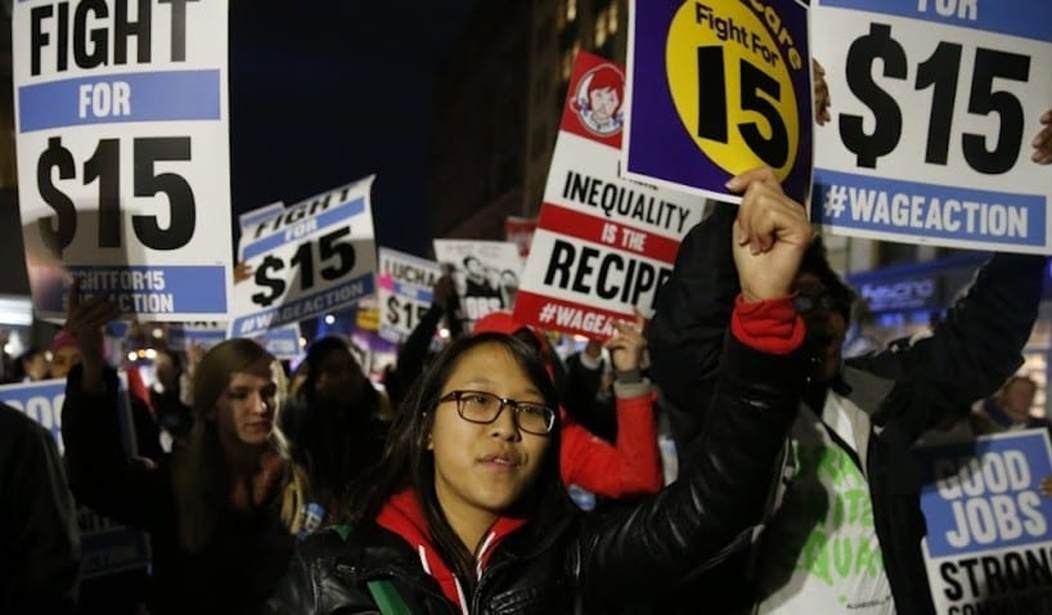Many Americans are campaigning for a raise in the minimum wage. Even more Americans are struggling just to find jobs at any wage.
Yup — those two news items are related.
While trying to present a case for the Massachusetts state legislature to approve a program that provides summer jobs to teens at non-profits and government agencies, an editorial at the Boston Globe accidentally explained why artificially imposed minimum wages kill job opportunities.
I don’t think the Globe even realized it, either:
The program provides money for YouthWorks, which pays the wages of 4,400 low-income teens in eligible cities who work for nonprofits or local government agencies in the summer. The Senate originally proposed the same funding amount as last year, $11.5 million. Level-funding actually means 600 fewer positions, though, because of the rise in the state’s minimum-wage increase to $10 per hour this year and $11 per hour next year.
Maintaining the number of positions would take $13.34 million. But the compromise budget bill lawmakers filed Wednesday night included $10.2 million for the program, which translates into about 1,000 jobs lost.
The editorial correctly notes that an increase in the minimum wage means anything with a set amount of funding for payroll will — of course — have to cut jobs.
In this case, a government-funded program with the same funding levels will be unable to hire nearly as many workers as it could before a state minimum wage increase kicked in.
This is also what happens in private business.
A store can attempt to increase the prices of its products to cover a mandated increase in payroll, but unless the store had been charging too little to begin with, increased prices translate to decreased revenue as customers seek lower-cost alternatives.
Business owners are left with no good choices other than cutting payroll. For businesses with minimum wage workers, that means layoffs or fewer new hires.
“But people can’t live on minimum wage,” they argue.
You know what’s even harder to live on?
No wage.
Those who are fighting for an increased minimum wage ignore the simple economics of running a company. Businesses only have so much money available to pay people. The difference between YouthWorks and private business is that only one gets to vote on how much they have available.
But yeah, that money comes from private business — in the form of taxes — too.
You can’t just mess with the supply/demand curve without causing unintended outcomes. Let employers and job-seekers figure out beneficial arrangements on their own — they are the only ones who can.









Join the conversation as a VIP Member